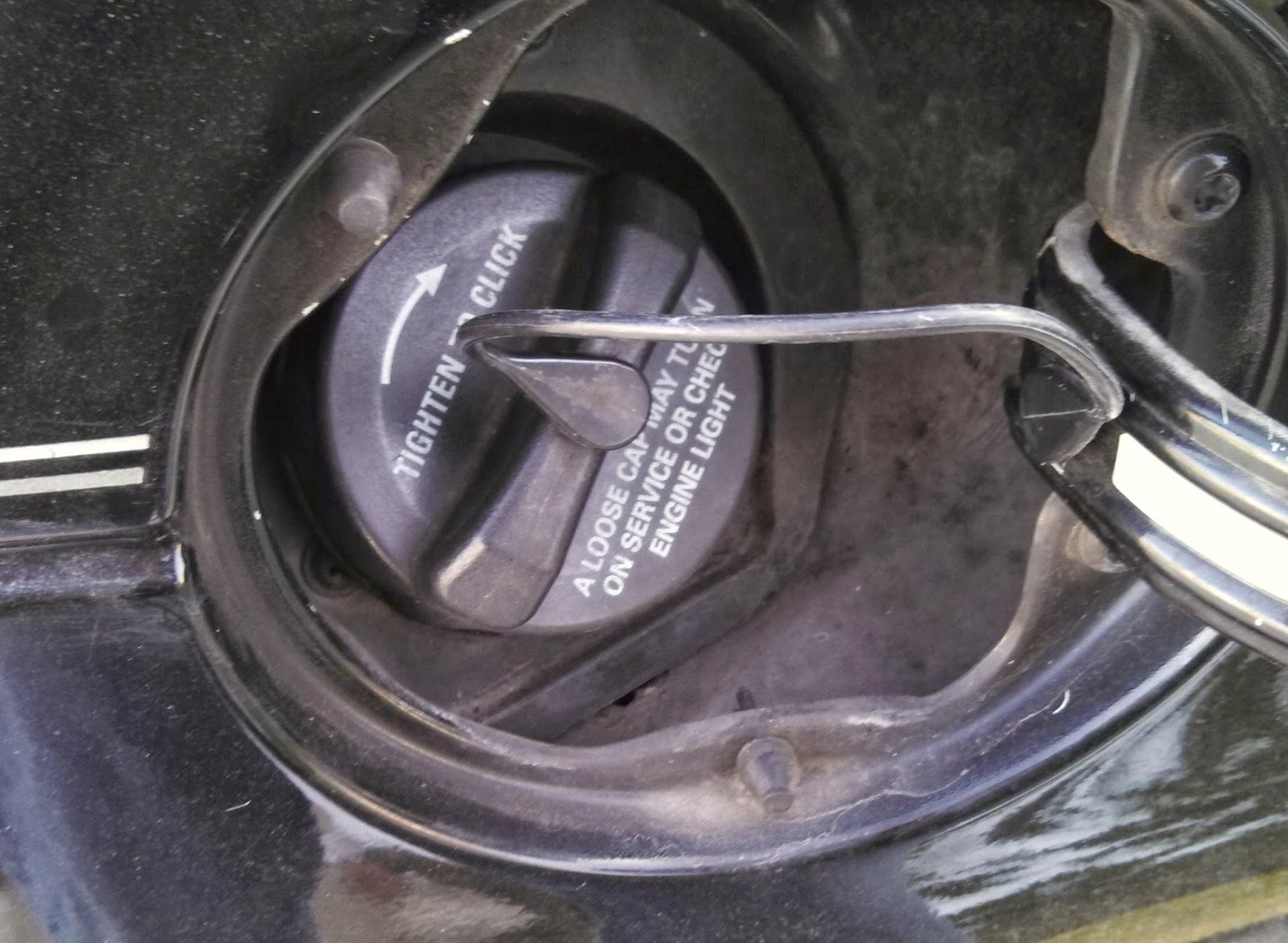Check Engine Light On? It Might Just Be Your Gas Cap!
That dreaded yellow glow on your dashboard – the check engine light – can send shivers down any driver’s spine. But before you envision expensive repairs, consider a surprisingly common culprit: your gas cap. Yes, that seemingly insignificant piece of plastic can be the reason your check engine light is illuminated.
A loose, damaged, or missing gas cap can trigger a chain reaction that leads to the check engine light turning on. It might seem minor, but your gas cap plays a crucial role in maintaining your car's evaporative emissions system, preventing fuel vapors from escaping into the atmosphere.
The evaporative emission control (EVAP) system is designed to capture gasoline vapors from the fuel tank and prevent them from polluting the air. A properly sealed gas cap is essential for this system to function correctly. When the gas cap isn't sealed tightly, or if it's damaged, these vapors can leak, which the car's computer interprets as a problem.
The onboard diagnostic system (OBD-II) in your car constantly monitors various systems, including the EVAP system. When a leak is detected, the system triggers the check engine light to alert you to the potential issue. While this light can indicate a variety of problems, a loose or faulty gas cap is one of the most frequent and easily remedied causes.
Ignoring a check engine light due to a gas cap issue can potentially lead to more serious problems. While the immediate impact might be limited to fuel evaporation and a slightly lower fuel economy, continued driving with a faulty EVAP system can eventually damage other components and increase emissions. Moreover, in some states, you might not pass emissions testing with a check engine light on.
The EVAP system and the associated check engine light functionality became standard in vehicles starting in the mid-1990s due to increasingly stringent environmental regulations aimed at reducing harmful emissions from automobiles. This system plays a critical role in minimizing air pollution and protecting public health.
If your check engine light comes on shortly after refueling, the first thing you should do is check your gas cap. Ensure it's tightly secured by turning it clockwise until you hear a click. If the cap appears damaged, cracked, or worn, it’s best to replace it with a new one specifically designed for your car model.
Benefits of a properly functioning gas cap and EVAP system:
1. Reduced Emissions: Prevents harmful gasoline vapors from escaping into the atmosphere, contributing to cleaner air.
2. Improved Fuel Economy: Minimizes fuel loss due to evaporation, saving you money at the pump.
3. Prevents Costly Repairs: Addressing a loose or damaged gas cap early can prevent further damage to the EVAP system and other components.
Step-by-Step Guide to Addressing a Check Engine Light Potentially Caused by a Gas Cap:
1. Park your car safely: Pull over to a safe location.
2. Inspect the gas cap: Check for any visible damage or looseness.
3. Tighten the gas cap: Turn clockwise until it clicks.
4. Drive for a few days: The check engine light may turn off automatically after a few driving cycles if the issue was indeed the gas cap.
5. If the light persists: Use an OBD-II scanner to read the error codes or take your car to a mechanic for diagnosis.
Advantages and Disadvantages of the Check Engine Light Related to Gas Cap Issues
| Advantages | Disadvantages |
|---|---|
| Early warning of a potential problem | Can be triggered by minor issues like a loose gas cap, causing unnecessary worry. |
| Helps prevent more serious and costly repairs | Doesn't pinpoint the exact problem, requiring further diagnosis. |
Frequently Asked Questions
1. Can a loose gas cap really cause the check engine light to come on? Yes, absolutely.
2. Will the light turn off immediately after tightening the gas cap? Not always, it might take a few driving cycles.
3. How much does a new gas cap cost? They are relatively inexpensive, usually under $20.
4. Can I drive with a check engine light on due to a gas cap issue? While you can drive for a short period, it's best to address it promptly.
5. What if the light stays on after tightening the cap? Use an OBD-II scanner or consult a mechanic.
6. How often should I check my gas cap? Every time you refuel.
7. Can a bad gas cap affect my car's performance? It can slightly reduce fuel economy and potentially lead to other EVAP system issues if ignored.
8. Do all cars have EVAP systems? Most cars manufactured after the mid-1990s do.
Tips and Tricks:
Always listen for the click when tightening your gas cap to ensure a proper seal. Replace a damaged gas cap immediately. Invest in a basic OBD-II scanner to read error codes yourself.
In conclusion, a check engine light triggered by a loose or faulty gas cap is a relatively common and easily addressed issue. While it can be a minor inconvenience, it's crucial to take it seriously to prevent potential damage to your car's EVAP system and other components. By understanding the function of your gas cap and the EVAP system, you can quickly diagnose and resolve this issue, saving yourself time, money, and contributing to a cleaner environment. Remember to always check your gas cap after refueling, and if your check engine light persists, consult a mechanic or use an OBD-II scanner to identify the underlying cause. Taking proactive measures in maintaining your vehicle ensures a smoother, more efficient, and environmentally conscious driving experience.
Unleash the beast exploring the bmw e92 m3 color palette
Unlocking physics through art the power of physics drawings
The unspoken code deciphering loyalty and respect in mexican politics














